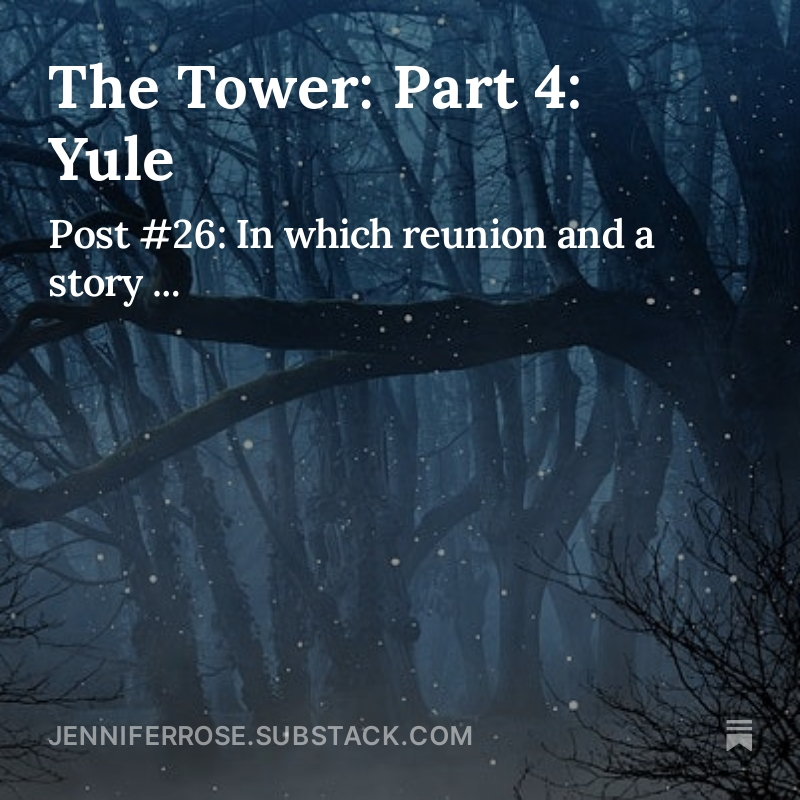Take My Breath Away
The more battered I feel by the news cycle and the daily externals of my world, the more important it is to spend time in solitude, focusing inward and practicing love and trust with myself.
(It sounds delightful, doesn’t it? So wise and functionally adult! It doesn’t read like tears; trauma; dumping feelings onto the page; wrestling with fear, despair, perfectionism, heat, humidity, housework, and (most recently) a fiery case of athlete’s foot while the garden turns into a steaming jungle outside my locked and blinded windows and the air conditioner gently roars.)
I recently reread The Mermaid Chair by Sue Monk Kidd. I haven’t read it in a long time, but it was next on the shelf, so I cracked it open. I came across a line I don’t remember and evidently didn’t remark on previously: “…I’d never done anything that took my own breath away …”
The speaker is a middle-aged woman and that line grabbed my attention.
We are consumed by externals. The male gaze. The public eye. What others think of our looks, our words, our actions. Is our virtue signaling adequate and prominent? Are we pleasing the right people? Are we flourishing our flags with sufficient outrage and hostility? Are our masks and identities firmly in place?
The more we focus on externals, the less we pay attention to our relationship with ourselves and the more broken we become.
Why don’t we think about taking our own breath away?
This might not seem important. After all, what’s more exquisite than the feeling of being in love? The sight and smell, sound, taste, and texture of the loved one. Every expression. Every word. Every insignificant detail, past and present, is breathtaking. For a time. How could we ever hope to compete with that feeling, that excitement?
But what happens if we never take our own breath away?
Some of my favorite stories are oral tales about the selchies; creatures who are men and women on the land and seals in the sea. Most of the time the old stories are about a woman whose sealskin is stolen by a man; she is coerced into staying with him, often raising a family, with the promise he will one day return her skin. Though the captured selchie may love her children and even the man, as time passes she begins to lose her vitality and wither, for she is cut off from the sea, a part of who she is. She must have what she is made of to be whole.
As a young woman, I had no thought in my head beyond finding a husband, someone who wanted me and would love me. I didn’t think about the love I needed to feel for him; I assumed I’d do whatever it took to be a “good wife.”
Two divorces later, much older and wiser, I realize how sad this is. Now I know no child or lover, no matter how wanted or beloved, can ever leave us breathless in the same way we can ourselves. Not only that, when we rest all our being on external love, when the object of our love leaves and the feeling is gone we are left more impoverished than before, more embittered, more lost.
Taking our own breath away gives us something we never lose; amazement for our own courage, or determination, or creativity. We always remember that thing we did, and marvel at ourselves. We develop confidence and trust in ourselves. We know we can struggle through obstacles, defy odds, learn a new skill, finish a big project, or take a leap in the dark. We know we can face our own fears and beliefs, and challenge them.
I believe this is a big part of what a midlife crisis is about. If we don’t push ourselves beyond our comfort level we wake up one day bored and apathetic, and wonder if this is it. Is this all life is, the familiar round of work, home, family, and friends?
We begin to think and dream about something more, that milestone we never achieved, that place we never visited, the opinion we never expressed, the art we never created, the truth we never dared tell.
We want … something. We need … something. Typically, we spend a lot of money trying to fill our craving, but nothing works for long because we’re looking for some intangible piece of ourselves, something stolen, something lost, something rejected. Perhaps we’re searching for our own permission or courage. Our quest becomes internal rather than external because (to our shame) we have a good life, a good job, a good-enough spouse or lover, a beloved child, yet we are not satisfied.
We want what we are made of.
No one can tell us what that is. No one knows. We have hidden it successfully from ourselves all our lives, after all. If we are lucky, one day we know what to do and have the means to do it. The outcome doesn’t matter. What matters is that we do it, we leap without a net, we create in a frenzy, we open our throats and speak our truth at last.
We take our own breath away.
Moving to Maine from Colorado was like that for me. How did I do it? I have no idea. I do remember my determination, though. I remember saying to myself I was going to do this thing no matter how impossible it was, no matter what others said about it (and me), no matter how many obstacles I encountered (I borrowed money from a friend for the first time in my life), no matter how terrified and anguished I was, I was going to do it. If I had to crawl on my belly all the way, I was going to do it.
And I did (in a U-Haul, not on my belly). And it took my breath away. Still does.
In general I’m a cautious, even conservative person. (In spite of my friend who affectionately calls me a dirty hippy!) I think things through carefully. I research all the options. I consider consequences. But sometimes this longing to find and express what we are made of is so strong we can’t think about it calmly and rationally. We are compelled beyond all that, pulled helplessly by the strength of our need to reclaim and express some lost part of ourselves. We don’t care about consequences. They are less important than finding ourselves.
I wonder if it’s a human need to experience this riptide at least once, to operate only on instinct, intuition, passion, and raw determination. Maybe it’s at least as important to follow our creativity and curiosity as it is to set concrete goals and make plans. Maybe the ability to be impulsive and unreliable is as important as dependability and careful planning.
In taking my own breath away, I’ve lived with a bad boy/man, had an unplanned pregnancy, and caught an STD. I’ve learned to dance. I’ve created visual art. I’ve written 2 books and started a third. I’ve become an oral storyteller. I’ve started and later redesigned my blog and published my fiction serially on Substack. I’ve moved to Maine. I regret none of these, no matter the consequences, which in some cases were painful.
What will I do next? I don’t know. But I’m not afraid to take my own breath away.
Questions:
- What’s the most breathtaking experience of your life?
- What part of what you’re made of are you longing for?
- How have you taken your own breath away?
- Who or what are you waiting for to take your breath away?
Leave a comment below!
To read my fiction, serially published free every week, go here: 






